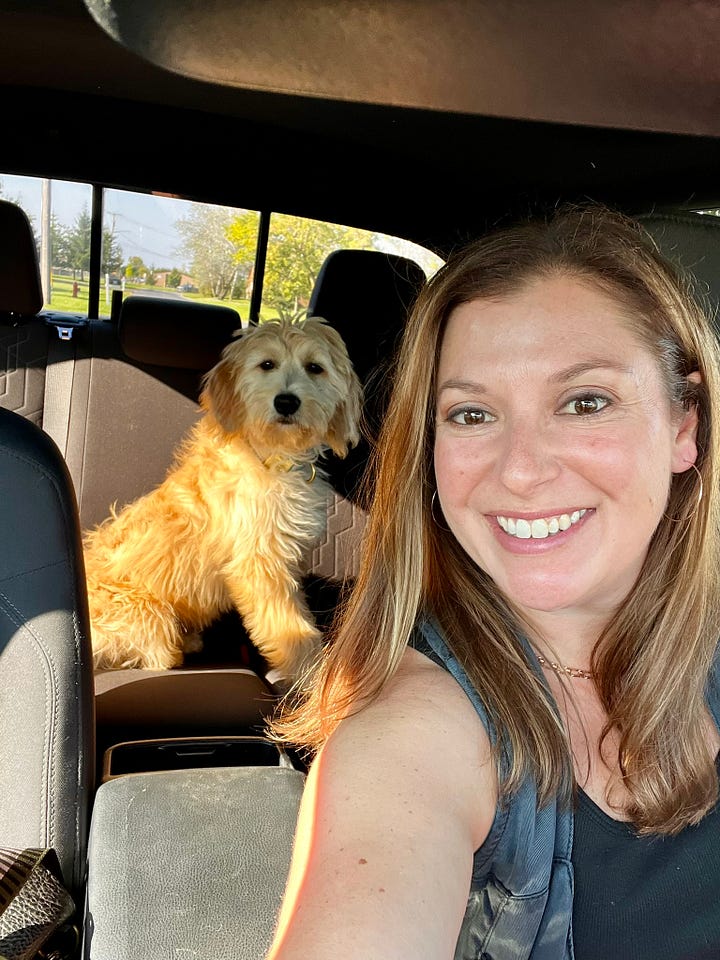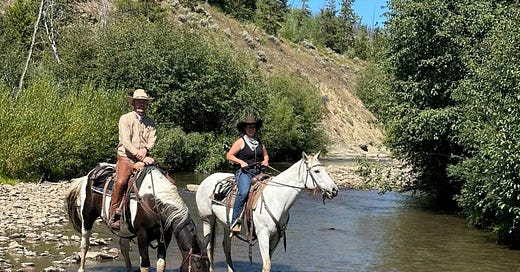Keep Calm and Carry On
Sometimes you're riding high on life, and sometimes life throws you off.
Last month we went on our annual family vacation to a remote Colorado horse ranch outside Rocky Mountain National Park. This year, my horseback riding vacation turned into a lesson on living life when things aren’t going your way. On the very last ride on our very last day, I was thrown off my horse and landed painfully on the ground. I am still nursing some bruises but otherwise okay. While on the milder side, the injury did significantly impact my daily existence, it reminded me of a fundamental truth: It is not about getting back on the horse—we all know that platitude—it’s about carrying on through the uncomfortable and even painful times because life goes on even if you’re not in peak condition.
Life Is Glorious When It’s Going Your Way
When things in life are going well, it’s easy to appreciate life. The riding trails at the ranch have some of the most beautiful scenery in Colorado—if not the world. When my horse is trotting along smoothly and as expected, I take in the landscape, not thinking about work, responsibilities, tasks, problems, or really anything except how amazing our God must be that he created all this for us to enjoy (and steward).
There are a lot of moments like this in our lives—vacations, celebrations, social gatherings, cozy winter nights with our family—that we are lulled into thinking how wonderful life is and how much we appreciate it and promise ourselves never to be negative or dour about our circumstances again.
Our financial life works like this as well; when times are good financially—you sold a business, got a promotion, bought your dream property, invested well…the good times make it easy to forget that your financial life will take beatings along the way—ups and downs, especially while you are building your foundations.
Life—Also Full of the Unexpected
Life can and will shift suddenly with little to no notice. And just like being thrown off a horse and being in pain, you have to figure out what comes next. Falling off the horse, or running headlong into the unexpected has a number of phases.
First, the moments of shock and surprise. “Did this really happen?” This moment was short-lived because I had physical pain to deal with that took immediate precedence. But it was there. Whenever the unexpected and tragic happens, we have that period of asking ourselves if this is all just some bad dream. Sometimes we stay in this phase for too long—refusing to acknowledge reality because by acknowledging it we have to deal with it.
After reality sets in, we take stock of our situation. This can be our mental or emotional state, or in this event—my physical state. I ran through the places in my body that felt pain, moved my legs, checked my arms, made sure my head seemed straight. I think this part—the taking stock of our internal selves—is the most difficult when catastrophe occurs. It’s difficult to know oneself when life is riding high, evaluating our status when dealing with a shock is almost impossible.
After evaluating our circumstances, we have to create a plan to deal with or face, or possibly solve, whatever this new problem is. In my case, I just needed to lay down and get ice and ibuprofen immediately.
When it comes to your finances—unexpected and even catastrophic events can happen that make it almost impossible to think straight. Depending on what has come your way, the feeling of wanting to ignore the problem is a very common reaction (think: ignored debt collection calls, or unopened bills on the counter). The emotional and sometimes physical toll that a financial calamity can take is often greatly overlooked.
As the British Say, ”Keep Calm and Carry On”
The worst part about falling off the horse was not how I felt or behaved in the immediate. It was how I chose to act the weeks afterwards. Still in pain and badly bruised, I was forced to modify a lot of things—and this led to complaining or sometimes just complete laziness on my part. Blaming my inability to do things fully in the time I wanted, I used this as an excuse to do nothing at times.
I was allowing my injury to dictate how I felt and lived the rest of my life. How many times does this happen that we let a challenge or painful part of life control how the rest of our moments are experienced? It’s only natural that when we are going through a down part, we live in it to a degree. But the best of us learn to carry on.
Keeping calm and carrying on is, I would say, the most important part of your financial life. Even if you don’t face some catastrophic event during your wealth-building project, sometimes the event you need to carry on through is just the boring nature of savings and waiting to buy the house or start the business. Often, the boring parts of this life most easily lull us into doing nothing because it’s so easy to say “I’ll start tomorrow.”
Carrying on does not mean pretending nothing is wrong or there is not a situation to face. And it certainly does not mean you allow whatever negative event you’re experiencing stop you from making progress in your life. It means, you suffer through it, but keep going—because the other side will arrive, but how you get there determines who you are and what you are made of.
Some Photos
Because 99% of our trip was absolutely fantastic, here are a few photos of our time in Colorado.


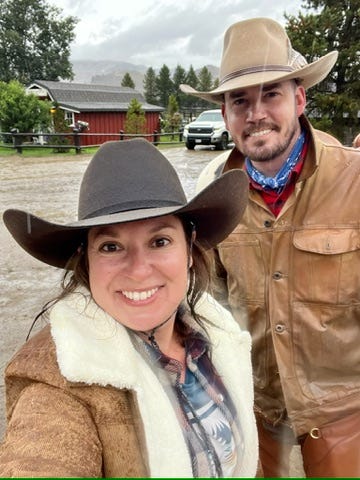
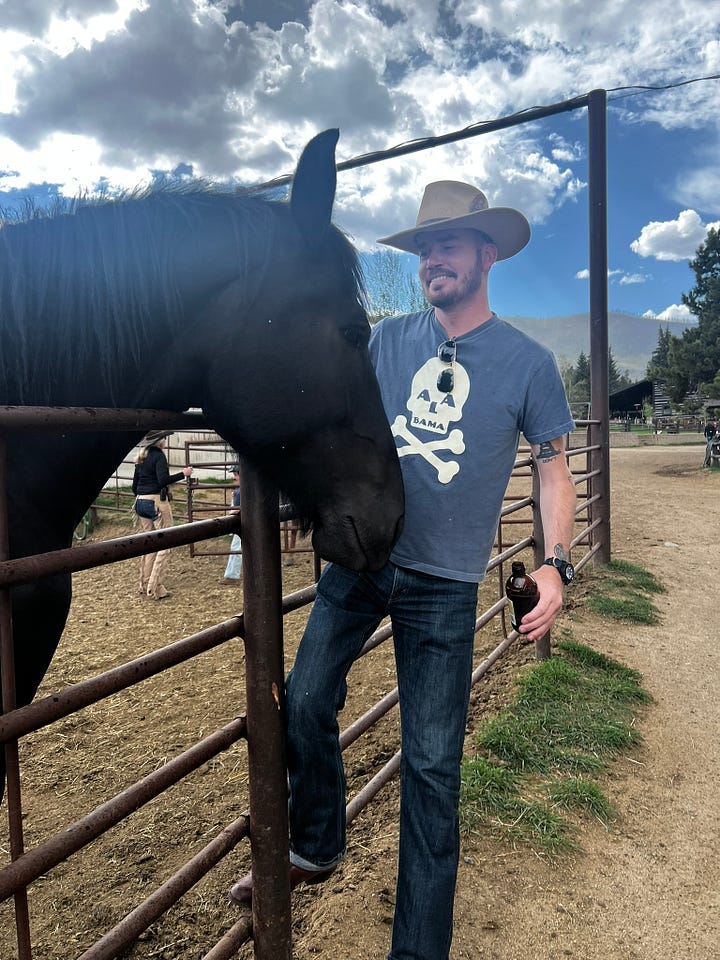
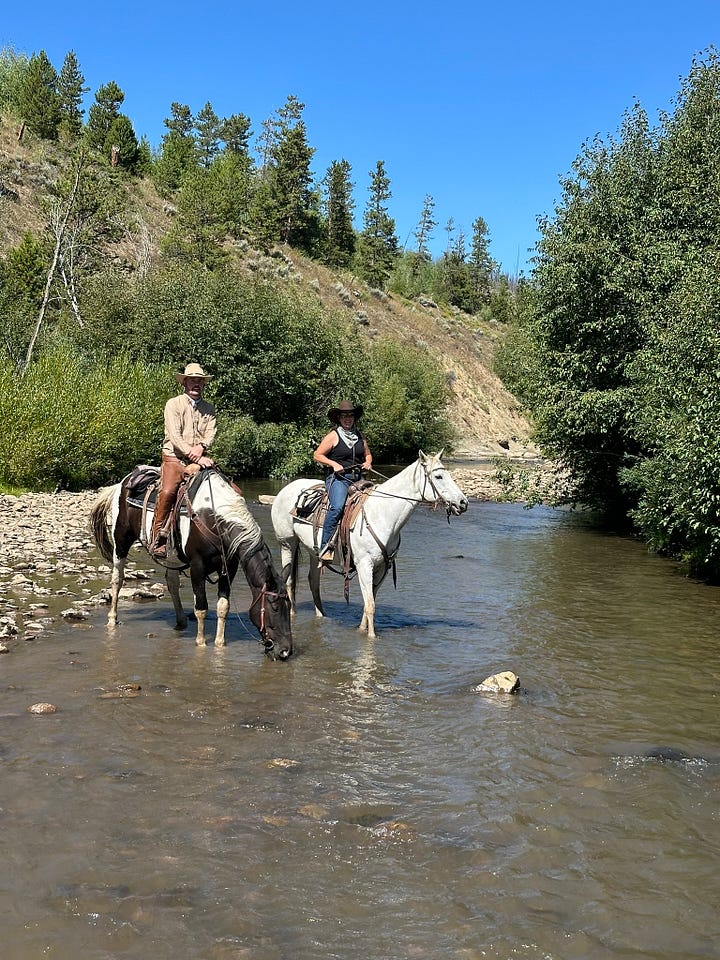
🍁🍂Village Life Lately
It seems like eons ago I was on vacation. Andrew and I have been busy with raising two puppies, hosting visitors, and enjoying the onset (finally) of a North Country fall.
